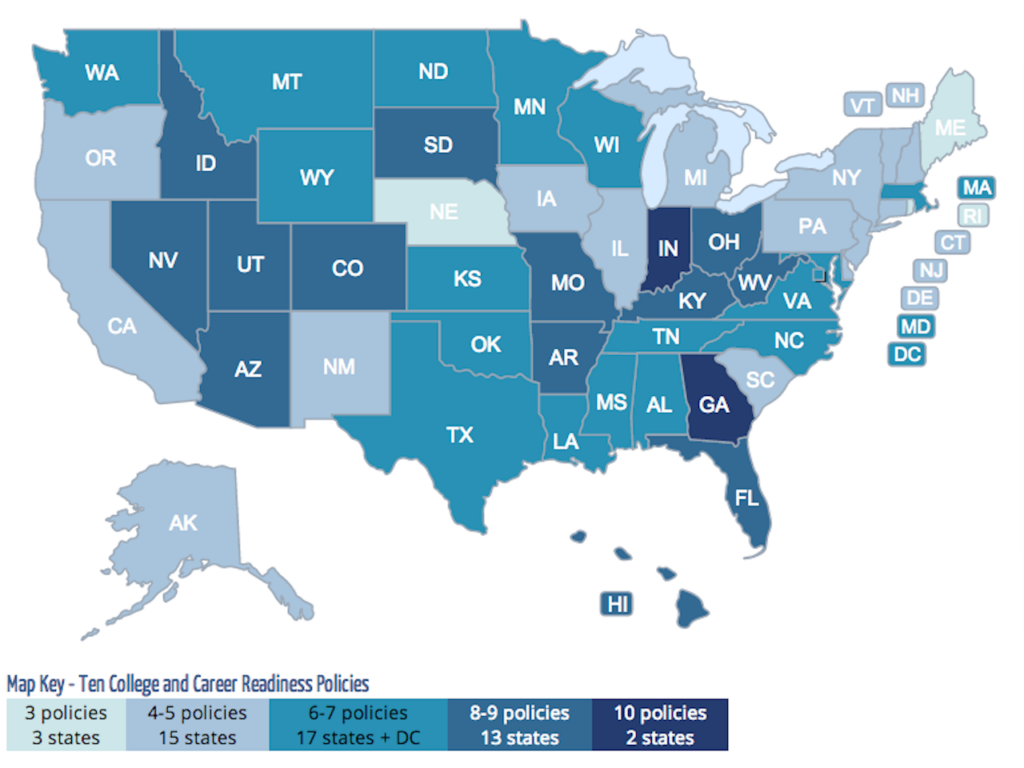A new report and online database released Wednesday provide a national snapshot of how states are working to prepare students for college, showing how California’s “college readiness” policies stack up against those in other states.
The Blueprint for College Readiness from the Education Commission of the States provides a look at where states stand in implementing what the report calls the 10 most “critical” policies that promote college readiness and success.
Those policies include whether states have college readiness standards and assessments in place at high schools, and whether graduation requirements match statewide college admissions requirements, among other policies. At the post-secondary level, the report looked at statewide remediation and college placement policies, as well as practices for transferring from community college to a four-year university.
California has adopted five of the 10 policies, the blueprint says. That’s on par with about 15 other states; 32 other states and the District of Columbia have adopted six or more of the policies.
California is among states that have adopted the Common Core State Standards in math and English, which identify preparing students for college and careers among their goals, and has built measures of college preparation into school accountability systems, the report said. Yet statewide high school graduation requirements do not match admission requirements at state universities, and California does not have a statewide definition of college and career readiness that is recognized by high schools and colleges.
“A definition could provide a backbone for the state to align its high school and higher education benchmarks to help secondary – and even elementary – teachers outline the knowledge and skills students will need to demonstrate college and career readiness by high school graduation,” the report said.
In California, a statewide advisory group is working to define best measures of college and career readiness as part of efforts to incorporate those standards into the Academic Performance Index for schools.
The Education Commission of the States is a national nonpartisan research and policy organization made up of representatives from all the states. Its goal is to provide “unbiased advice and create opportunities for state leaders to learn from one another.”
The blueprint is intended to help education and policy officials understand the reforms taking place in their states, the commission said.
“In a glance, you can now see where states are strong and where opportunities for improvement exist,” commission President Jeremy Anderson said in a statement.
The blueprint examined four policy areas at the high school level and four at the post-secondary level, as well as two “bridge” policies authors said impact both high school and higher education. Areas examined were:
- High school: Whether states have college readiness standards and college readiness assessments; whether graduation requirements match university admission standards; and measures for holding schools accountable for the standards;
- Post-secondary: Statewide admissions standards; statewide remedial and placement policies; transfer policies and accountability standards;
- Bridge: Whether states have a broadly understood definition of college and career readiness, and whether states have a data pipeline and process for reporting how well schools and colleges are meeting the standards.
To get more reports like this one, click here to sign up for EdSource’s no-cost daily email on latest developments in education.
